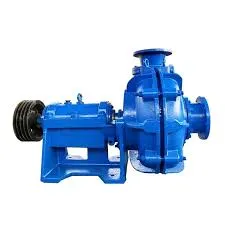Basque
- Afrikaans
- Albanian
- Amharic
- Arabic
- Armenian
- Azerbaijani
- Basque
- Belarusian
- Bengali
- Bosnian
- Bulgarian
- Catalan
- Cebuano
- Corsican
- Croatian
- Czech
- Danish
- Dutch
- English
- Esperanto
- Estonian
- Finnish
- French
- Frisian
- Galician
- Georgian
- German
- Greek
- Gujarati
- Haitian Creole
- hausa
- hawaiian
- Hebrew
- Hindi
- Miao
- Hungarian
- Icelandic
- igbo
- Indonesian
- irish
- Italian
- Japanese
- Javanese
- Kannada
- kazakh
- Khmer
- Rwandese
- Korean
- Kurdish
- Kyrgyz
- Lao
- Latin
- Latvian
- Lithuanian
- Luxembourgish
- Macedonian
- Malgashi
- Malay
- Malayalam
- Maltese
- Maori
- Marathi
- Mongolian
- Myanmar
- Nepali
- Norwegian
- Norwegian
- Occitan
- Pashto
- Persian
- Polish
- Portuguese
- Punjabi
- Romanian
- Russian
- Samoan
- Scottish Gaelic
- Serbian
- Sesotho
- Shona
- Sindhi
- Sinhala
- Slovak
- Slovenian
- Somali
- Spanish
- Sundanese
- Swahili
- Swedish
- Tagalog
- Tajik
- Tamil
- Tatar
- Telugu
- Thai
- Turkish
- Turkmen
- Ukrainian
- Urdu
- Uighur
- Uzbek
- Vietnamese
- Welsh
- Bantu
- Yiddish
- Yoruba
- Zulu
Telephone: +86 13120555503
Email: frank@cypump.com
Aza . 24, 2024 04:34 Back to list
clearwater irrigation
Clearwater Irrigation Sustainable Solutions for Modern Agriculture
In an era where water scarcity and agricultural efficiency have become critical issues, Clearwater Irrigation stands out as a beacon of innovation and sustainability. As farmers and agricultural businesses grapple with the challenges of increasing crop demands while maintaining ecological balance, Clearwater Irrigation offers cutting-edge solutions that not only improve yield but also ensure responsible water usage.
At its core, Clearwater Irrigation is dedicated to providing advanced irrigation systems that maximize water efficiency. Traditional irrigation methods often lead to significant water wastage, with over-watering and runoff being common problems. Clearwater’s approach focuses on precision irrigation technology, incorporating sensors and automated systems that deliver the right amount of water at the right time. This application of technology not only conserves water but also enhances crop health, leading to improved productivity.
Clearwater Irrigation Sustainable Solutions for Modern Agriculture
Furthermore, Clearwater Irrigation emphasizes the importance of using renewable water sources. By utilizing rainwater harvesting and greywater recycling systems, agriculture can become more sustainable. Clearwater’s systems are designed to collect and repurpose water that would otherwise go to waste, making it possible for farmers to rely less on groundwater and surface water sources. This shift not only alleviates pressure on local water supplies but also helps farmers reduce costs associated with water procurement.
clearwater irrigation

For Clearwater Irrigation, education and support are key components of their service. They offer comprehensive training programs and resources to help farmers understand the best practices in water management. By empowering farmers with knowledge, Clearwater ensures that irrigation systems are effectively utilized, leading to long-term sustainability and profitability. This commitment to support illustrates Clearwater's understanding that successful irrigation goes beyond technology—it requires a partnership with the farming community.
In response to climate change and its impact on water availability, Clearwater is also focused on adaptive irrigation strategies. Climate variability poses new challenges, necessitating flexible and responsive irrigation systems. Clearwater’s technologies can be adapted in real time, allowing farmers to adjust their water use based on current weather conditions and soil moisture levels. This proactive approach not only conserves water but also protects crops from stress conditions that can hinder growth.
In addition to promoting sustainable practices, Clearwater Irrigation also prioritizes environmental conservation. Their systems help reduce the runoff of fertilizers and pesticides into nearby waterways, contributing to healthier ecosystems. By integrating best practices in soil health and minimizing chemical use, Clearwater supports not only the farmers but also the surrounding community and environment.
In conclusion, Clearwater Irrigation is at the forefront of sustainable agricultural practices, providing farmers with the tools they need to thrive in a changing world. By focusing on water efficiency, education, and environmental conservation, Clearwater is not just transforming irrigation; they are redefining the future of agriculture. As we face the twin challenges of food security and water sustainability, Clearwater Irrigation exemplifies the innovative spirit necessary to navigate these complexities, ensuring that agriculture can grow responsibly within the planet's limits.
-
ISG Series Pipeline Pump - Chi Yuan Pumps | Energy Efficiency&Compact Design
NewsAug.03,2025
-
ISG Series Vertical Pipeline Pump - Chi Yuan Pumps Co., LTD.|High Efficiency, Low Noise, Durable
NewsAug.02,2025
-
ISG Series Vertical Pipeline Pump - Chi Yuan Pumps | High Efficiency, Low Noise
NewsAug.02,2025
-
ISG Series Vertical Pipeline Pump- Chi Yuan Pumps Co., LTD.|High Efficiency&Compact Design
NewsAug.02,2025
-
Heavy-Duty Mining Sludge Pumps - Wear-Resistant Slurry Handling
NewsAug.02,2025
-
Horizontal Split Case Pump with GPT-4 Turbo | High Efficiency
NewsAug.01,2025










